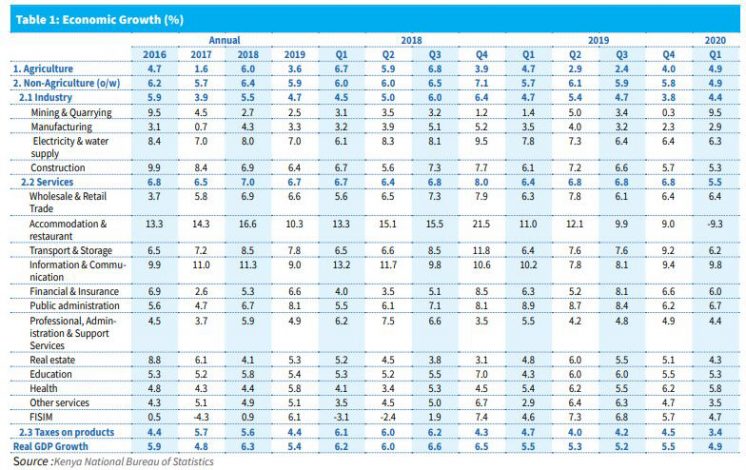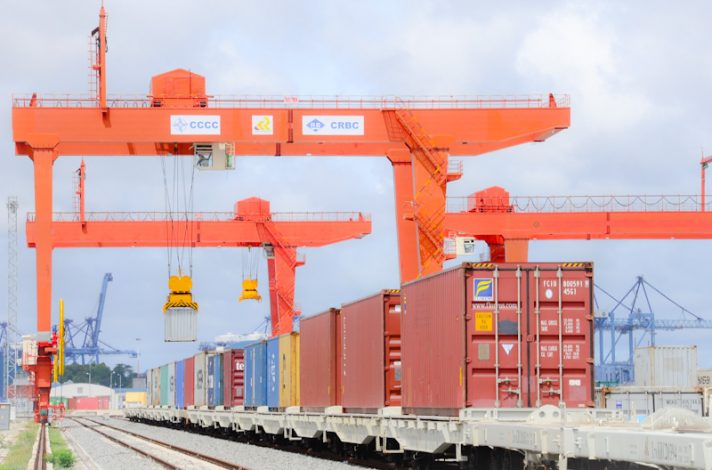Kenya’s economy is expected to contract in the second quarter, due to the adverse effects of the Covid-19 pandemic, the central bank said on Friday.
In its weekly bulletin, the CBK said the economy remained resilient in the first quarter of 2020, and grew by 4.9 percent compared to 5.5 percent in the first quarter of 2019.
The Kenya National Bureau of Statistics had attributed the growth to significant improvement in agricultural production arising from favorable weather conditions and the resilient services sector.
However, KNBS said, “The economy was affected by the resultant uncertainty that was already slowing economic activity in some of the country’s major trading partners.”

Consequently, CBK says “The effects of COVID-19 pandemic on the economy are expected to be felt more significantly in the second quarter of 2020.”
This further collaborates June’s Markit Stanbic Bank Kenya Purchasing Managers’ Index (PMI) which besides a moderate rebound in business activity, projects a gloomy outlook.
“However, the damage done by COVID-19 could last for the better part of the next six months, notwithstanding what official growth statistics may indicate,” said Jibran Qureishi, the head of research for Africa at Stanbic Bank.
In June, the softening of the economy was attributed to a reduction in curfew hours that helped many businesses to increase operating hours and reopen premises.
Dr. Patrick Njoroge, CBK Governor post-Monetary Policy Committee meeting in June said “The full brunt of lockdowns, night curfews and restricted movements of persons, which were introduced in March, was felt most severely in April. But there are all indications that the economy is beginning to bounce back strongly.”
The CBK Governor projected to a strong post-pandemic recovery attributed to strong performance in the tea and horticultural sector.
In May, receipts from tea and horticulture exports increased by 15.2 percent and 22.7 percent, respectively, in May 2020 compared to May 2019.
The country’s National Treasury expects economic growth to slow to 2.5 percent this in the fiscal year 2020/21 from 5.4 percent last year, while the International Monetary Fund is forecasting a 0.3 percent contraction.
“The coronavirus pandemic continues to have a perverse bearing on both the demand and supply of goods and services. To be sure, what was initially a supply shock has morphed into a demand shock as disposable incomes decline.
Even as the economy gradually reopens, it is unlikely that aggregate demand convincingly rises given the uncertainty regarding the duration of the pandemic and the potential structural shocks to labor markets,” NCBA Research Analysts commented in their Inflation Reaction for the month of June.
As of Friday, Kenya had 7,188 confirmed COVID-19 cases from 180,206 samples tested, 2,148 recoveries. and reported 154 deaths.
READ




